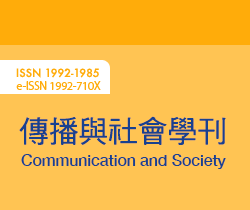 |
| April 2015 |
 |
32 |
|
| 研究論文Research Articles |
| 台灣當代議聘過程之文化與性別意涵分 析:一個苗栗客家地區文化展演的觀察 |
| A Cultural and Gender Implications Study of Negotiating Betrothal Money/Gift Situations in Contemporary Taiwanese Society: A Cultural Performance Observation for Hakka People in Miaoli County |
|
|
|
 |
 (4279)
(4279)
|
| 作者 |
吳翠松、羅宜青、陳羅水 |
| Author |
Tsui-Sung WU, I-Ching LO, Lo-Shui CHEN |
| 關鍵詞 |
議聘、戲劇論、人情和面子理論、性別意涵、文化展演 |
| Keywords |
betrothal money, dramaturgical approach, face and favor theory, Hakka, gender implication |
| 摘要 |
本研究以高夫曼的「戲劇論」和台灣本土心理學的「人情與面子理論」為基礎,試圖透過苗栗地區議聘過程的觀察,了解蘊涵於其中的文化與性別意涵。在文中研究者選擇了一場男女雙方、親友與媒人皆為客家人的議聘事件做為觀察對象,並於事後訪談相關在場人士。
研究結果發現,整個議聘過程極為迂迴,雙方家長甚少直接對話,金額的協商主要由媒人進行,雙方父親發言都不多,聘金最終金額的決定權是在女方手中。對於雙方家長而言,透過聘金的收取與婚禮的舉行,女兒即為夫家人,某個程度其相關權利亦被交換至夫家。不過,由於台灣當代的性別平權觀念極為盛行,致使女方家長仍會擔心自己的收聘行為被貼上「賣女兒」標籤,故而在議聘場合中,傳統被要求負責賺錢養家的「父親」就不便表達意見,以免損害其男性尊嚴,改由母親負責表態。總結來說,「聘金」仍深含着牟斯《禮物》一書中所指稱的交換意涵。
|
| Abstract |
This study, drawing on Goffman’s dramaturgical approach and the face and favor theory of indigenous Taiwanese psychology, aimed to explore the cultural and gender implications for the situation of negotiating the betrothal money/gift of Hakka people in Miaoli Country in contemporary Taiwanese society.
In this study, we chose one situation of negotiating a betrothal money/gift in which all the participants are Hakka to be the observation field and interviewed all the participants subsequent to the event. The research results revealed that the entire negotiating process was extremely circuitous. Both parents rarely engaged in direct dialogue, with the negotiations for betrothal money amount being carried out mainly by the matchmakers. The groom and bride’s fathers did not express much opinion in this situation, and the final right decision for the amount of betrothal money was determined by the bride’s family. There are several cultural and gender features in the situation of negotiating a betrothal money/gift among the Hakka in contemporary Taiwanese society.
Firstly, males and elders have the priority in this event. The better seats for negotiating are occupied by males and elders. Secondly, the bride’s parents usually have the right to decide, because the groom’s parents’ proposal of betrothal money was subject to the consent of the bride’s parents. Thirdly, the fathers of the bride and groom usually did not express any opinion about the amount of the betrothal money.
From the research results, we found that the patriarchal value system continued to exert a deeply influence on all participants in this event. For both sets of parents, the bride’s rights were also transferred to her husband’s family through the bride price charged and the where the wedding was held. But since the concept of gender equality is extremely popular in contemporary Taiwanese society, the bride’s parents were worried about their behavior in accepting betrothal money being labeled as an act of “selling the daughter,” especially for the bride’s father.
This is because, in traditional Chinese society, the role of “father” is to be responsible for making money to be able to support his family, therefore the behavior of accepting betrothal money will damage his male dignity. So the bride’s father prefers to keep silent and defer to her mother to express an opinion in this situation.
本文引用格式
吳翠松、羅宜青、陳羅水(2015)。〈台灣當代議聘過程之文化與性別意涵分析:一個苗栗客家地區文化展演的觀察〉。《傳播與社會學刊》,第32 期,頁167–208。
Citation of this article:
Wu, T.-S., Lo, I.-C., & Chen, L.-S. (2015). A cultural and gender implications study of negotiating betrothal money/gift situations in contemporary Taiwanese society: A cultural performance observation for Hakka people in Miaoli County. Communication & Society, 32, 167–208.
|
|
|
 |
| No.74 2025 October |
 |
| No.73 2025 July |
 |
| No.72 2025 April |
 |
| No.71 2025 January |
 |
| No.70 2024 October |
|
